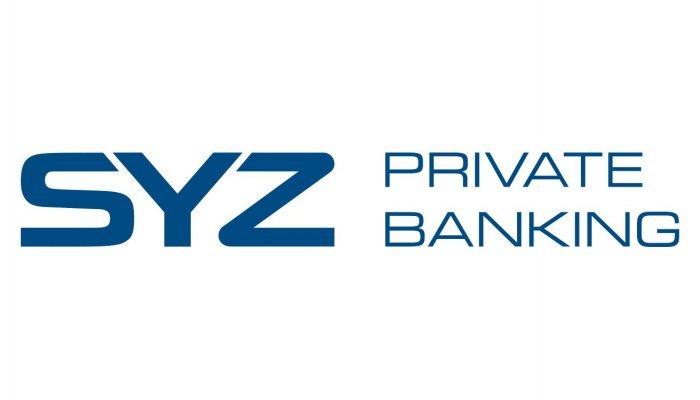Offshore banking constitutes a sizable portion of the international financial system. Almost half the world's capital flows through offshore centers. The most popular offshore financial centers are in jurisdictions with a history of political and economic stability.
Background
The first offshore financial center, Switzerland, has a long history of offshore banking dating back to the early 1700s which started to protect wealthy European traders’ banking interests. Swiss banking secrecy was codified in 1934, further solidifying its status as a financial center, Switzerland is therefore considered the grandfather of offshore financial centers
Currency and capital controls limiting international trade and the need to facilitate transactions outside of these controls for international business, was the main driver for the establishment and use of other offshore financial centres in the 1960’s and 1970’s. An offshore financial centre is defined as a centre where the bulk of the counterparties (clients) of financial institutions are non-residents.
In the early 1970s, Luxembourg began attracting private investors from The Netherlands, France and Belgium due to advantageous tax treatment of investments and banking secrecy rules. The Channel Islands and the Isle of Man then emerged to provide similar offerings. In the Middle East, Bahrain served as a collection centre for the region's oil surpluses during the mid-1970s, after passing banking laws and providing tax incentives to facilitate the incorporation of offshore banks. The Bahamas and later, the Cayman Islands joined in to provide advantageous banking and tax environments. The 80’s brought relaxed currency and capital controls which shifted the purpose of Offshore Financial Centers to taxation and regulatory regimes.
The initial success motivated several other small countries to attract this business. Many had little success, because they were unable to offer any meaningful advantage over the more established centers. This led to some late arrivals appealing to the less legitimate side of the business!
Today there are over 42 offshore financial centers globally, from Mauritius and Seychelles on the African continent to Singapore and Hong Kong in Asia, Europe has many jurisdictions, like Switzerland, Monaco, Luxembourg; the UK jurisdictions include Jersey, Guernsey, Isle of Man; in the Middle East there is Bahrain and in the Western hemisphere is the Cayman Islands, BVI, Bahamas, to name a few of the renowned offshore financial centres.
Common Reporting Standard (CRS), was introduced in 2016 as a new information-gathering and reporting requirement for financial institutions where, currently, over 100 states and territories, including all major financial centers, help fight against tax evasion and protect the integrity of tax systems. This fundamentally reduced the tradition of privacy of offshore financial centers and investors changed their end game from tax evasion to asset protection, protection from less stable political and legislative regions and seeking better returns, as well as tax and estate planning.
All the offshore jurisdictions are not the same, however, the local legislation and tax regime will offer different advantages and disadvantages in every jurisdiction. For some jurisdictions, the value add is limited to the provision of professional infrastructure like company formations and trusts, and some have better developed financial markets and infrastructure, while others only provide advantages to fund managers etc. There is no one-size-fits-all when it comes to offshore jurisdictions. It is very important to do one’s homework and not only choose the right fit in financial institution, but also make sure the financial institution is based in the correct location that aligns with investors’ financial needs and aspirations and tax planning requirements.
Banking in Switzerland
Within the above context, Switzerland stands out from other offshore financial centers nowadays, offering, as a jurisdiction, important financial and political stability as well as legal certainty, privacy protection and a greater access to global financial markets and investment vehicles.
Switzerland’s long-standing stability stems from its age old foreign and international policy of neutrality, which was established by The Treaty of Paris in 1815. Switzerland has not participated in a war since then. This policy is self-imposed, permanent and is designed to ensure external security and promote peace. Switzerland is not part of the European Union although it is part of the Schengen area. Switzerland ranks in the top 8 jurisdictions for stability and future predictability. The political landscape in Switzerland has always remained stable and the balance of power between the main political parties rarely changes which is a contributor to Switzerland being one of the world’s most stable economies.
Banque SYZ, a Swiss bank, based in a jurisdiction that offers unrivaled financial and political stability for investors who seek security and protection for their wealth, knows that it centralizes custody services from Switzerland, provides added peace of mind.
Investing through Banque SYZ allows investors to participate anywhere in the world, in any currency, through any listed investment vehicle thus creating a more diversified investment portfolio able to plug into global opportunities.
In addition, Switzerland has double taxation agreements in place with more than 100 countries, benefitting investors who may predictably prevent double taxation.
When thinking of Estate Planning, it is important to know that each jurisdiction works under different legal systems, it is therefore key to understand the legal implications of one’s investments within that jurisdiction. For example, certain jurisdictions have enforced inheritance laws and investors with funds domiciled in that country, despite where they are resident, could be subjected to the inheritance laws of such offshore jurisdiction. Many jurisdictions will not acknowledge foreign wills, so if one has a bank account in such jurisdiction, it is advisable to check if it is necessary to have a will made up there. This can add complications and increase costs. Even though, Switzerland does have forced heirship rules, it will respect foreign wills drawn up in investors countries of residence drafted by them with their national formalities. On the other hand, should the foreigner live in Switzerland he could even by will choose his national law to be applicable (professio juris) instead of Swiss law.
When considering foreign Estate Planning tools, it is worth noting that Switzerland has signed and adopted the Hague Convention on the recognition of foreign trusts. Even if as of today there is no national law on trusts, Switzerland, recognizes the existence, validity and effects of foreign trusts. This recognition is highly valuable for foreign investors planning their successions with Trusts.
For investors based in South Africa, a more volatile investment environment, with more risks locally, Switzerland offers a good diversification and reduction in that risk. Less than 1% of the world’s GDP is invested in South Africa, therefore it makes sense to diversify one’s own opportunities and invest through a Swiss offshore bank. Investors will access the widest range of global investment opportunities and have more prospects to diversify to better performing areas in times of stress in South Africa. Due to the much-diversified investment opportunities through Switzerland, it is no surprise that Swiss banks manage more than a quarter of the world’s cross-border assets making it the world’s largest offshore financial center.
The global market is dominated by Switzerland and the Cayman Islands in terms of offshore banking centers and total deposits. The Swiss Bankers Association (SBA) estimated that Swiss banks held in excess of US$6.5 trillion in assets or 25% of all global cross-border assets. Switzerland is known as the best country for asset protection.
Banque SYZ is an Authorised Financial Services Provider. FSP number 46429








